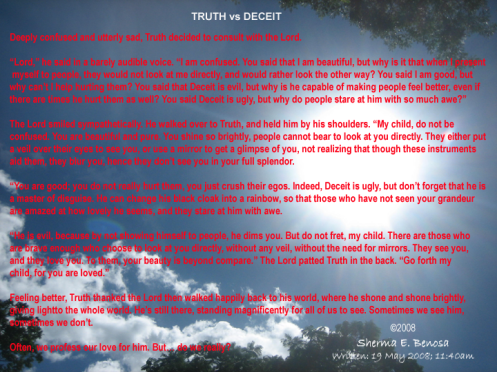Photo.graphic Thoughts
If good pictures could launch thousands of ships, and meaningful words could reach the depths of the soul, allow me then to put my lines and images together. If they could at least launch a wooden boat and touch one weary soul, then I would know I’ve done something good.

PhotoGraphic Thoughts
is the darkroom that develops the picture of the world as I see it through the lenses of my perception. It was conceived one day when I thought of finding a way to convey my thoughts more effectively, and share my photos in a more special way.
Technically, PhotoGraphic Thoughts is a photoblog, but I see it as so much more, for it contains not just my photos, but also the flashes of thoughts and ruminations I had as I looked into my lenses. The reflections contained herein may or may not reflect universal truths, but they definitely provide glimpses of the reality mirrored in my existence.
COPYRIGHT NOTICE
Materials in this site, including, but not limited to, texts and photos, are owned by Sherma E. Benosa. Use, distribution, and/or copying of the same, in part or in full, is not allowed without written permission from the owner.
To seek permission to use, distribute, or copy content, email her at sebenosa@gmail.com.
Pages
Recent Comments
Recent Posts
Top Clicks
- None
Top Posts
Blog Stats
- 5,634 hits


![THE WRITTEN WOR[L]D](https://i0.wp.com/feeds.feedburner.com/DwickedAngelsHaven.1.gif)


But if we can see what we want to see, we CAN see Truth – if we want to!
And if we did not want to see Truth, we would not gain any benefit from seeing Truth.
I guess the ultimate and absolute truth is our own, individual mortality. When faced up to, each day is the most precious gift. But it’s easy to see why we don’t always want to face up to this!
I’ve blogged about how lucky we are to be us, and living now. I wonder what you’d make of that?
Url: http://catchthevision.wordpress.com
Hello!
Oh! That’s a good point of view you offered, Catchthevision! I can see you are looking from a different perspective, and I’m glad you are sharing it here.
“But if we can see what we want to see, we CAN see Truth – if we want to!”
Hmmm… it’s kinda confusing. I can see the logic in your statement, and I cannot debunk it. Logically speaking, you are correct. But in practice… I have reservations. You see, I’m wondering, isn’t it possible that we may still NOT see the whole truth even if we want to?
I’m not sure if I’m right, but I think we are using the same phrase with a slightly different meaning. I think what I mean in my statement “we see what we want to see” is that given an object, we humans tend NOT to see the object as it really is (twisted perception) and we tend to be incapable of seeing it in its entirety (limited perspective/view). So, given opposing views of the object, we only see that part which we want to see.
I think, in my usage, I am talking about us having limited perspective of an object, whereas you are talking about us being capable of seeing an object IF we want to.
What do you think?
As to the other parts of your comment, I quite agree. 🙂 Been to your blog, and I’ve seen lots of good materials there. But I haven’t yet seen that post you are talking about.
Could you give me the permalink, please?
Ah! You got me revisiting my sidepost. 🙂 Good one! Big thanks.
I agree that it is possible that we may still NOT see the whole truth even if we want to – to really see the truth we probably either need the innocence of a child, or have developed wisdom through our life experience which allows us to regain that sort of innocence? (We’re too darn clever most of the time, and often not very wise?)
Not an easy situation, but asking questions goes a long way – and you’re asking loads of questions!!
I hope I’m right in thinking that you did find “How lucky to be you and to be living now” which is on my blog under Categories and Thoughts from Graham, just click on the relevant box.
Funny how we can go from ‘Truth’ to ‘clicking’.
Keep up the good work of challenging us all.
Url: http:/catchthevision.wordpress.com
Hello: I believe that truth lies in an developed image. At least for the time the image is taken. In other words truth is relevant to the exact time an image is frozen in time. People may not accept truth simply because their background and life’s experiences have taught them to be extremely cautious of anything someone says. For example, a man and wife are having an agrument. I’ll simplify, the man says, “I swear I will never do that again.” He meant that and nothing else, there’s nothing hidden in what he said. The woman, from her point of view, believes what he really means is he will never do it again unless he can get away with and not be caught, and she tells him that. That’s not the truth the way he sees it but the way she has learned to believe it. Of course, these roles could have been reversed. I believe real truth stems from the amount of confidence one has in his or her self.